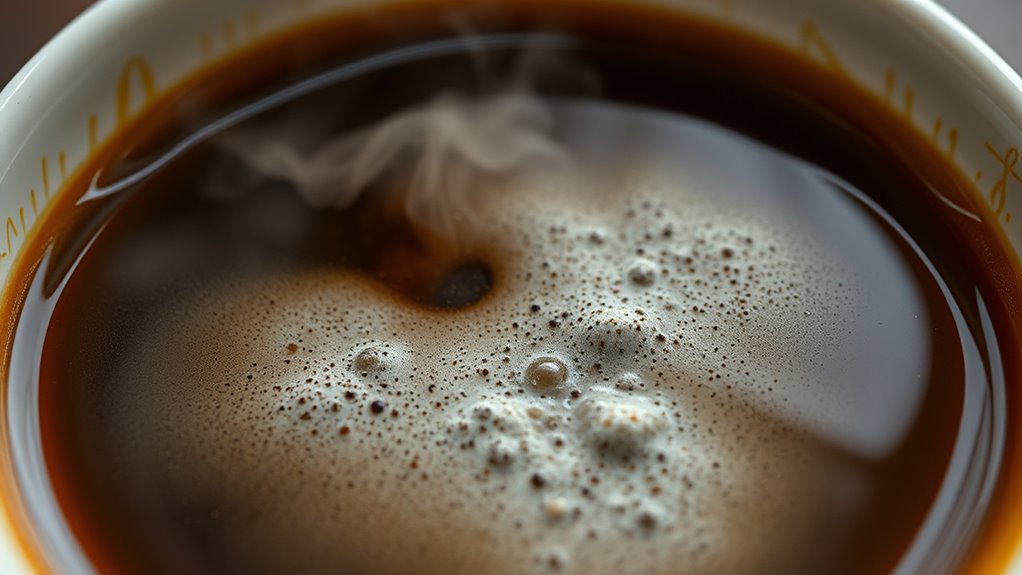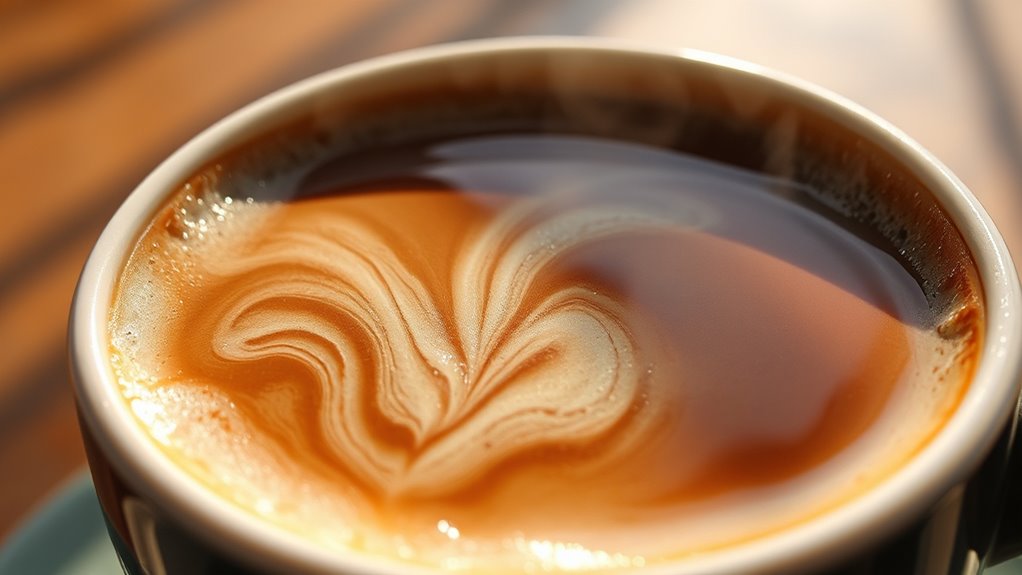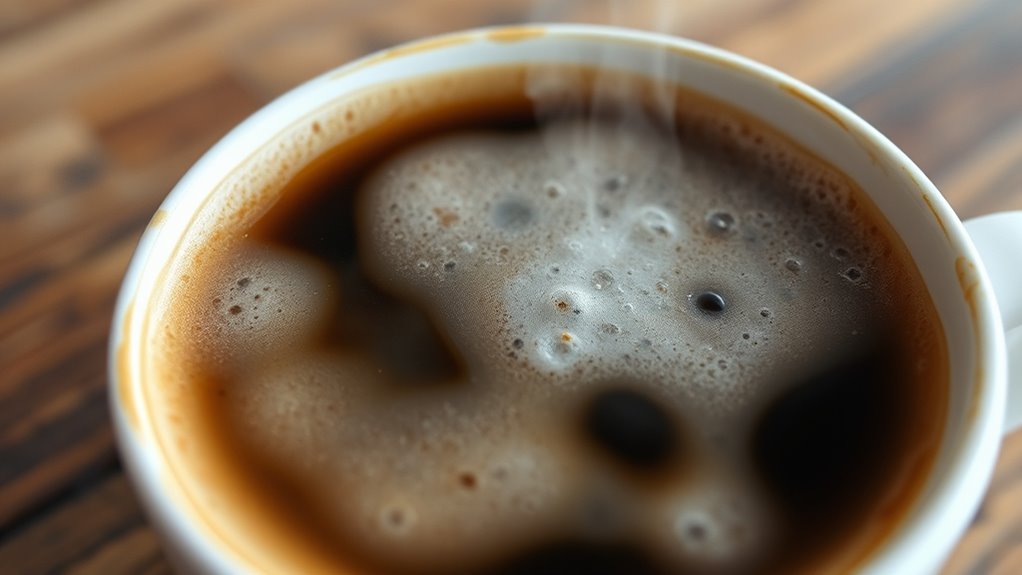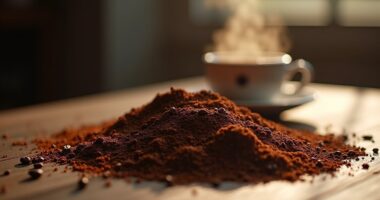So, that white stuff floating in your coffee? Don’t sweat it! It’s usually harmless coffee oils or mineral deposits, not an alien surprise party. If you’ve got cold brew, those oils can solidify—totally normal! Sometimes, it’s even just leftover coffee chaff from roasting. It might look weird, but it often enhances your drink’s flavor and mouthfeel. Curious about what else could be lurking in your cup? Stick around, there’s more fascinating stuff to uncover!
At a Glance
- The white stuff may be solidified coffee oils, especially common in cold brew, enhancing richness and flavor.
- It could also be mineral deposits from hard water, resulting in white spots.
- White specks might consist of harmless coffee chaff particles from the roasting process.
- Curdled milk particulates can appear if dairy is added, affecting texture but not taste.
- Not all white substances indicate poor quality; they can enhance the overall coffee experience.
Causes of White Specks in Coffee

Have you ever noticed those pesky white specks floating in your coffee and wondered what’s up with that?
Well, it could be solidified coffee oil, especially if you’re sipping cold brew. Those little flakes actually pack flavor and aroma!
Then there’s mineral buildup from your water, like calcium and magnesium, which can also cause those white spots.
And don’t forget about chaff particles—harmless remnants from roasting that love to tag along in lighter roasts.
Different brewing methods can make these specks pop up, but don’t worry, they’re just part of your coffee’s quirky charm!
Interestingly, low acid organic coffee can also be less prone to developing these white specks due to the smoother extraction process during brewing.
Enjoy your cup!
Types of White Substances Found
When you take a sip of your coffee and spot those white substances floating around, you might find yourself scratching your head in confusion. Don’t worry, it’s just some common culprits! Here’s a quick rundown:
| White Substance | Description |
|---|---|
| Coffee Oils | Solidify in cold brew, giving richness. |
| Milk Particulates | Curdled or floating bits from dairy. |
| Residual Grounds | Small, harmless particles from brewing. |
| Mineral Deposits | White spots from hard water. |
Additionally, the type of coffee beans you choose can influence the amount of coffee oils that appear in your brew.
Impact on Taste and Quality

While you might think those mysterious white bits floating in your coffee are a sign of trouble, they can actually jazz up your brew in surprising ways!
Those white specks often come from natural coffee oils, adding a richer mouthfeel and depth to your drink. This isn’t just any old coffee; it’s a quality indicator that shows you’re enjoying an authentic extraction. Additionally, the rich flavors of ground coffee can enhance your overall coffee experience, making each sip more enjoyable.
Even sediment from non-dairy milk can play a part, changing the texture without ruining your taste perception.
Common Misconceptions About White Specks
So, what’s the deal with those pesky white specks in your coffee? You might be falling for some white speck myths!
Most of the time, those specks are just solidified coffee oils, not mold. Seriously, mold likes to show off with fuzzy patches, and that’s not what you’ve got.
Ever notice white flakes? That’s coffee chaff, totally harmless!
And don’t think it’s only cold brew that gets this—hot coffee can have them too. Affordable coffee choices can help you enjoy your favorite brew without worrying about those little specks.
Handling and Prevention Tips

If you’ve ever spotted those white specks in your coffee and wondered what’s up, don’t sweat it!
These little guys are usually just harmless coffee oils or chaff. For safe consumption, remember to store your cold brew in the fridge and drink it fresh. Proper coffee storage methods can also help prevent unwanted particles from forming.
To keep things tidy, tackle those mineral deposits with a mix of vinegar and water—your coffee maker will thank you! Using filtered water helps too, cutting down on those pesky deposits.
Plus, always clean your grinder to avoid chaff buildup. With these cleaning tips, you’ll enjoy a clearer, tastier cup every time! Cheers!





